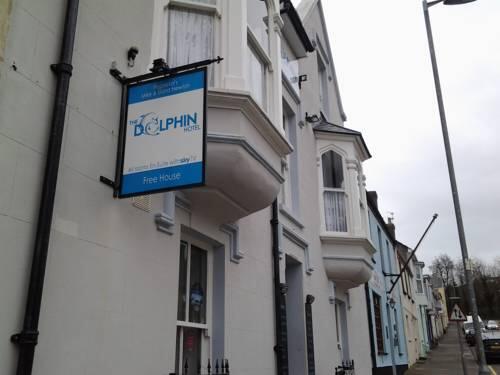News
Vaughan Gething could lose no confidence vote due to sick colleagues

First Minister Vaughan Gething is poised to face a critical vote of no confidence today, amid mounting controversy over his leadership and campaign funding. The Senedd vote, initiated by the Conservatives, comes after sustained criticism of Gething’s acceptance of donations from a company owned by an individual previously convicted of environmental offences. With significant internal party strife and key members absent, Gething is expected to lose the vote, which could significantly undermine his authority.
In a revealing interview with BBC Radio Wales Breakfast, Vikki Howells, chair of the Labour group of Members of the Senedd (MSs), disclosed that two Labour MSs are currently unwell and unable to attend the vote. This development places Gething’s leadership in jeopardy, as Labour’s narrow majority in the Senedd requires full attendance for a definitive win. The absent MSs are Hannah Blythyn and Lee Waters, both significant figures in Welsh Labour’s internal dynamics. Blythyn, recently sacked by Gething, and Waters, a former transport minister who has previously called for the contentious donations to be returned, are pivotal in this unfolding drama.
Their absences, compounded by the lack of proxy voting or remote participation options, have thrown Labour’s plans into disarray. Labour holds exactly half of the 60 seats in the Welsh Parliament, meaning every vote is crucial for maintaining Gething’s position. Without Blythyn and Waters, Labour is left vulnerable, especially as the Conservatives, along with Plaid Cymru and Welsh Liberal Democrat Jane Dodds, have refused to agree to a pairing arrangement to offset the absences.
The Conservatives’ motion could succeed if even one Labour MS rebels, abstains, or does not participate in the vote. This potential outcome has turned the vote into a high-stakes affair, with significant implications for Gething’s leadership. Vikki Howells criticised the vote as a “gimmick” by the Conservatives, aiming to distract from their own performance over the past 14 years in government. She emphasised that such votes should be decided by the public in a general election, not by parliamentary manoeuvres.
Plaid Cymru has accused Gething of showing contempt towards the Senedd. Their leader, Rhun ap Iorwerth, highlighted the internal conflict within Labour over this issue. “Are there Labour members who are wrestling with their conscience? Absolutely, we know there are,” he said, pointing to a fracturing within the party ranks.
Gething, who ascended to the position of First Minister just 77 days ago, has been under intense scrutiny following revelations that he received a £200,000 donation from Dauson Environmental Group during his leadership campaign. The company’s owner, David John Neal, has a history of environmental violations, further fuelling the controversy.
Throughout the leadership contest, Gething faced calls from within Labour to return any remaining funds from Dauson, a plea he has largely ignored. Additionally, Gething’s credibility has been questioned over his handling of a leaked message during the pandemic and the subsequent sacking of Blythyn, who has not spoken in the Senedd since.
The Conservative leader, Andrew RT Davies, laid out the rationale behind the no-confidence motion, citing concerns about Gething’s judgement, transparency, and honesty. “One there’s a question of judgement, two there’s a question around transparency and three there’s an issue around honesty,” he stated on BBC Radio Wales Breakfast.
While today’s vote is technically non-binding and does not necessitate Gething’s immediate resignation, the political ramifications are significant. A loss would underscore a weakening grip on his party and diminish his authority, casting a shadow over his nascent leadership. This vote underscores the turbulent nature of Welsh politics, where internal party strife and external criticisms can converge to threaten even the most newly established leadership.
The origins of this controversy trace back to Gething’s Welsh Labour leadership election victory in March. His campaign was notably dominated by the £200,000 donation from Dauson Environmental Group. Public reaction from Labour politicians was largely muted during the campaign itself, but Gething has failed to prevent private anger from rising to the surface. There were calls from within Labour for the party not to take any remaining money from Dauson, as it normally would with leftover funds from campaign contests.
Adding to Gething’s woes, he found himself defending a controversial message he sent during the pandemic. As then-health minister, Gething informed colleagues he was deleting texts from a ministerial group chat, an action that has drawn criticism and raised questions about transparency and accountability. His subsequent sacking of Hannah Blythyn, which he attributed to her being the source of a leak, has not been backed by evidence, leading to further discontent and demands for clarity.
In a political environment where every move is scrutinised, Gething’s ability to unify his party and command respect in the Senedd has been called into question. The no-confidence vote, while non-binding, is seen as a litmus test for his leadership. Should Gething fail to rally his party members, the implications could be profound, potentially triggering a leadership crisis within Welsh Labour.
As the Senedd convenes to cast their votes, the political stakes could not be higher. The outcome of this vote will not only determine Vaughan Gething’s immediate political future but also shape the broader narrative of Welsh politics in the months to come.
Business
Pembroke Dock restaurant to close on Christmas Day after £23,000 rates rise

A PEMBROKE DOCK restaurant owner has said she is “devastated” after being forced to close her business on Christmas Day following a projected business rates increase of more than £23,000.
Randalls Restaurant, which operates from The Dolphin Hotel in Pembroke Dock, has been run by Natalie Newton and her family since 1999. Ms Newton took over the business in 2018 after her parents retired, overseeing a major transformation from a traditional pub and bed and breakfast into a hotel and restaurant.

For the past seven years, she and her fiancée, chef Ben Randall, have worked to build the restaurant’s reputation, offering breakfasts, lunches and evening meals using locally sourced produce where possible, as well as hosting special events including Christmas parties, buffets, afternoon teas and themed dining nights.
However, Ms Newton said she was left with no option but to close the restaurant after discovering that its business rates are expected to rise from around £10,000 to £33,000 from next year.
She said: “It’s a great shame. My father is absolutely devastated – this was his legacy. I took it over and built a really successful restaurant, and now it feels like it’s been taken away.”
Ms Newton said she checked her projected rates bill using the Government’s online calculator and was shocked to see that it had more than trebled. With quieter trading months expected early in the year, she said the increase was simply not sustainable.
“January, February and March are quieter months,” she said. “From April I’d need to find an extra £2,750 every month. Even if I managed it, I’d be working for nothing, and I’m worried I wouldn’t be able to pay my bills and would end up in the red.”
She added: “I’ve made the decision to close straight after Christmas Day. It’s drastic, but I have to keep my head above water and protect everything my parents worked for.”
Ms Newton said the decision had not only affected her family but also the restaurant’s eleven members of staff.
“I’ve invested everything back into this business,” she said. “Every penny the restaurant has made has gone straight back into it. I’ve worked every day, nights and weekends, and I haven’t had Christmas at home for seven years.
“For the last six months I’d look around the restaurant when it was busy and think how lucky we were. People were happy, good food was going out. Now it feels like it’s all been snatched away.”
The Herald has reported extensively on growing concern among Pembrokeshire businesses over sharp increases in business rates following updated valuations, with several town centre traders warning that rising fixed costs are pushing otherwise viable businesses to the brink.
Ms Newton said she intends to focus on running the hotel after Christmas but will miss the restaurant and its customers.
“I’m going to miss everyone,” she said. “I’ve loved building relationships with customers over the years. I just want to thank everyone who believed in Ben and me and supported us.”
Business rates in Wales are due to be updated from April 1, 2026, to reflect current property values. The Welsh Government has said that while many businesses will see their bills fall, others will face increases.
It has announced that any business facing an increase of more than £300 will have the rise phased in over two years rather than being applied in full immediately.
Cabinet Secretary for Finance and Welsh Language Mark Drakeford said previously: “We know businesses have faced significant economic challenges in recent years. This support package will help them manage the transition to updated rates bills while we deliver on our commitment to a fairer rates system.”
Crime
Emergency bags rolled out to support domestic abuse victims across Dyfed-Powys

Thirty packs provide immediate help for families fleeing dangerous situations
A NEW initiative aimed at supporting victims of domestic abuse has seen thirty emergency bags distributed for use across the Dyfed-Powys Police area.
The bags, which contain essential items including toiletries, non-perishable snacks and emergency supplies, are designed to offer immediate practical support to individuals and families forced to flee abusive situations, often with little or nothing.
The scheme forms part of the Police and Crime Commissioner’s wider commitment to improving outcomes for victims and is being delivered in partnership with Dyfed-Powys Police and Dal i Godi, the commissioned Independent Domestic Violence Adviser (IDVA) service.
Dal i Godi provides specialist support to victims at high risk of serious harm, including safety planning and advocacy through the criminal justice process.
Police and Crime Commissioner Dafydd Llywelyn said the initiative was already proving its value.
“This is an incredible initiative that I’m proud to support,” he said. “It provides meaningful help to those experiencing trauma and reflects our ongoing work to put victims first.
“Within just a few days of the bags being distributed to the Dal i Godi service, one was given to a victim fleeing a domestic abuse situation, along with a children’s pack to support their young family. That shows just how essential this support can be and how quickly it can make a difference.”
Detective Chief Inspector Llyr Williams, from the Dyfed-Powys Police Vulnerability Hub, said the emergency bags could provide a vital lifeline at critical moments.
“These emergency bags offer support at some of the most difficult moments in a person’s life,” he said.
“The contents provide immediate comfort, dignity and practical help for those leaving their homes in crisis. While simple, they represent an important first step towards safety and recovery.
“We are proud to be working with partners across the Dyfed-Powys area to ensure this support reaches people when they need it most.”
Anyone experiencing domestic abuse, or concerned about someone else, is encouraged to seek help. In an emergency, call 999.
Domestic abuse can also be reported online via Dyfed-Powys Police.
Support services available include Victim Support Dyfed-Powys, which offers free and confidential help to anyone affected by crime, whether or not it has been reported, and Dal i Godi, which provides specialist IDVA support for high-risk victims.
The Live Fear Free Helpline offers 24-hour support for those experiencing domestic abuse or sexual violence across Wales.
If you or someone you know is a victim of domestic abuse, please consider reporting it. If you are in danger or need support right away, please call 999.
You can report domestic abuse through the online crime reporting service here: Report domestic abuse | Dyfed-Powys Police.
Support is also available via the below support services:
Victim Support Dyfed-Powys
Free, independent support for anyone affected by crime in the Dyfed-Powys area, whether or not it has been reported to the police.
0300 123 2996
Dal i Godi (IDVA Service)
Specialist support for victims of domestic abuse at high risk, offering safety planning, emotional support, and advocacy with agencies such as police and courts.
01267 221194
Live Fear Free Helpline
24/7 support for anyone experiencing domestic abuse or sexual violence.
0808 80 10 800 | Text 07860 077333
News
Welsh-language school praised for ‘happy, proud and friendly community’

Estyn highlights strong leadership, positive attitudes and a clear curriculum vision at Ysgol Bro Preseli
A WELSH-medium all-age school in Crymych has been praised by inspectors for fostering a “happy, proud and friendly community,” according to a recent Estyn report.
Inspectors said pupils at Ysgol Bro Preseli show pride in their local area, thrive both academically and socially, and are well prepared for the next stages of their learning.
The school currently has 932 pupils on roll, including 118 in the sixth form, and has operated as an all-age school since 2022.
Estyn found that most pupils demonstrate extremely positive attitudes to learning, treat staff with respect, and listen carefully to the contributions of their peers.
The report also notes that, in almost all cases, teachers show strong subject knowledge. Inspectors highlighted the close and supportive relationships staff build with pupils, alongside the creation of a safe learning environment where pupils are not afraid to make mistakes.
It states: “As a result of a clear strategic direction and detailed planning, teachers provide beneficial practical activities that allow pupils to develop purposeful oracy, reading and writing skills in language sessions and across the other areas of learning and experience.”
Inspectors also praised the school’s clear curriculum vision, rooted in its motto Gwreiddiau a Gorwelion (Roots and Horizons).
“Leaders and teachers provide a coherent curriculum and learning experiences that bridge the primary and secondary sectors effectively,” the report said. “Staff plan stimulating activities and experiences for pupils to learn and deepen their understanding within the areas of learning and experience. This contributes positively to the sense of belonging that permeates the whole curriculum of Ysgol Bro Preseli.”
Headteacher Rhonwen Morris said the report was a reflection of the collective effort across the school community.
“As a successful all-age Welsh-medium school, we are delighted that the report recognises our commitment to excellence and the unique identity that makes Ysgol Bro Preseli so special,” she said.
“Since becoming an all-age school in 2022, our cohesive leadership team and governing body have focused on building a strong foundation based on our values of Welsh ethos, kindness, community and responsibility.
“The report highlights the excellent strategic work of staff at all levels, which is a testament to the shared dedication and vision that drives our school forward.
“It is gratifying that the report reflects what we continuously aim to achieve day in and day out. This achievement belongs to our entire community — staff, pupils, parents and governors — and together we will continue to build on this success and provide the very best education for every pupil.”
-

 Crime3 days ago
Crime3 days agoMilford Haven man jailed after drunken attack on partner and police officers
-

 News6 days ago
News6 days agoDyfed-Powys Police launch major investigation after triple fatal crash
-

 Crime3 days ago
Crime3 days agoTeenager charged following rape allegation at Saundersfoot nightclub
-

 Crime4 days ago
Crime4 days agoMan charged with months of coercive control and assaults
-

 Crime5 days ago
Crime5 days agoMan sent to Crown Court over historic indecent assault allegations
-

 Crime7 days ago
Crime7 days agoMan spared jail after baseball bat incident in Milford Haven
-

 Crime5 days ago
Crime5 days agoMilford Haven man admits multiple offences after A477 incident
-

 Crime4 days ago
Crime4 days agoWoman ‘terrified in own home’ after ex breaches court order





























